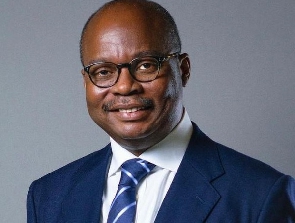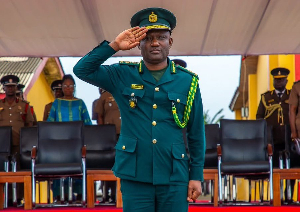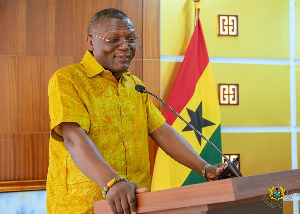Discussions regarding the proposed US$3billion International Monetary Fund (IMF) bailout programme are progressing well, Bank of Ghana Governor Dr. Ernest Addison has said.
The IMF reached a Staff-Level Agreement on the US$3billion three-year Extended Credit Facility with Ghana in December 2022; however, there are some prior actions to be achieved in order for the Fund to finally sign an agreement with the country.
Responding to questions at a press briefing following the Monetary Policy Committee meeting, Governor Addison noted that the budget statement for 2023 is on a consolidation path consistent with key elements agreed with the IMF at the Staff Level in December 2022.
He noted that the domestic debt exchange programme, new revenue measures and structural fiscal reforms will provide significant debt service reductions and help create fiscal space. However, the fiscal outlook is contingent on financing the budget and will require a conclusion of the domestic debt exchange programme, and securing the requisite financing assurances from bilateral donors.
“We were anticipating that the IMF board will convene by the end of March, but this is subject to obtaining financing assurances from bilateral creditors. Fortunately, there has been progress on this front as the official creditors’ committee met last week and are now looking at a date in April – by which time they can provide the necessary financial assurances. Once we have signed the memorandum of understanding and once parliament has passed the new revenue measures, we should have completed what is known as the prior actions,” the Governor elaborated.
He indicated that this is essential for the fund to set a date for the executive board meeting. “Therefore there are two steps forward, and we hope that by the end of April we will see the executive board meeting take place.”
On the back of this, Dr. Addison said: “We are confident about the outlook, and the foreign exchange situation is not dire. We have been quite successful with our gold sales programme, and we have been able to increase our reserves through gold purchases. Thus, it is not as severe as initially projected.
“The good news is that indications are these discussions are proceeding well,” he said.
Passage of revenue bills
According to government, it is imperative that parliament prioritises passage of the revenue bills currently before it. The outstanding bills are the Income Tax (Amendment) bill, Excise Duty & Excise Tax Stamp (Amendment) bills, as well as the Growth and Sustainability Levy bill. These bills are necessary for effective budget implementation and boosting the state’s efforts at increasing the tax-to-GDP from less than 13 percent to the sub-Saharan average of 18 percent.
When passed, these bills will lead to a revenue yield of approximately GH¢3.96billion. So far, government has completed three prior actions – including tariff adjustment by the Public Utilities Regulatory Commission (PURC), publication of the Auditor-General’s report on COVID-19 spending, and onboarding of Ghana Education Trust Fund (GETFUND), District Assemblies Common Fund (DACF) and the Road Fund on the Ghana integrated financial management information system (GIFMIS) – as established in the Staff Level Agreement.
Dr. Addison said: “Under the Staff Level Agreement with the IMF, the Bank of Ghana and Ministry of Finance have finalised a memorandum of understanding on zero financing to the budget, which will be signed shortly”.
The passage of relevant revenue bills by parliament will therefore conclude the required prior actions to advance Ghana’s programme to the IMF Executive Board. This is critical in setting the economy on the path of recovery, including putting it firmly on a disinflation and sustained growth path.
Business News of Wednesday, 29 March 2023
Source: thebftonline.com













